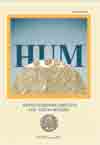DANAK U KRVI U ROMANU NA DRINI ĆUPRIJA I U SUVREMENOME PRIPOVIJEDANJU
TRIBUTE IN BLOOD IN THE NOVEL THE BRIDGE ON THE DRINA AND IN THE MODERN NARRATIVE
Author(s): Marko DragićSubject(s): Literary Texts
Published by: Filozofski fakultet Sveučilišta u Mostaru
Keywords: Christians; Ottomans; janissaries; Mehmed-Pasha Sokolovic
Summary/Abstract: Tribute in blood was introduced by Sultan Murat II. in 1420. Although the tribute was opposite to the Sharia, every five years the Ottomans took the Christian children aged eight to ten, and sometimes up to twenty years. Physically capable children were sent to the sultan’s palace, while other children were sent to the Turkish families in Anatolia and Romania where they were trained by the Turkish way of life. Those children were used to create elite military units - the janissary. Janissaries could marry a Muslim after the military service so their descendants were exempted from the same fate. With the fall of the Bosnian-Hum kingdom, in 1463. one hundred thousand Christian children were taken away in Janissaries and harems. Christians would often cut off the finger to their boys, taught them to turn deaf-mute, tattooed the crosses on their body and in every way tried to save their own children so they wouldn’t be taken away in the Janissaries. However, from the 15th century by the end of 17th century two hundred to three hundred thousand boys were taken away from Balkan to become the Janissaries. Among those children was a boy named Mehmed Pasha Sokolovic who made a brilliant career in the Ottoman Empire, becoming the Grand Vizier in 1565. Remembering his mother when he last saw her with many other mothers, who were on the other side of the Drina River crying and groaning because they were seeing off their children in the Janissaries, Mehmed-Pasha Sokolovic ordered to build the bridge on that place.
Journal: Hum
- Issue Year: 2012
- Issue No: 8
- Page Range: 123-140
- Page Count: 18
- Language: Croatian

